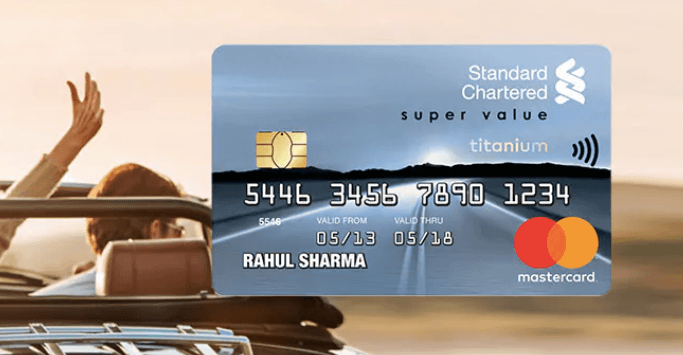If you have bad credit, there are still credit card options available to you. The choices you have are either a subprime credit card or a secured credit card. Rebuilding your credit history is tough when you have bad credit. If you want to increase your credit score when it is low, you need to open any type of credit card account that you can. Once you do, you must be responsible with it to prove that you are worthy of good credit again. It is tough to get approved for most types of credit cards when you have bad credit. Fortunately, secured credit cards and subprime credit cards are available to people in these situations. Learn more about the best credit cards available for people with bad credit. Secured Credit Cards Secured credit cards are like normal credit cards. The main difference is that you need to pay a security deposit prior to opening the credit card account. This deposit is refundable, don’t worry.
The credit limit on your secured credit card will usually be the same as the security deposit amount that you paid. As you use this account, you can make purchases with this credit card like normal. Merchants will not even know this is a secured credit card. You will receive monthly statements in the mail which has the minimum amount that you’re expected to pay for that month. You cannot use your security deposit to pay your monthly bill because the deposit is collateral for the issuer in case you default on the card altogether. If there is a balance on the credit card, there will be interest charges added to it. Again, the issuer wants to see that you’re responsible enough to handle the obligations of a normal credit card. If you make your payments on-time for 12 months, your credit score will likely increase because of it. This may qualify you for an unsecured credit card, which is the next step in rebuilding your credit. You can also choose to just close your secured credit card account after you pay off the balance. Either way, your security deposit will be refunded. You should not have a problem getting approved for a secured credit card because the issuer is not taking any risk with you. The security deposit you make eliminates the risk. The issuer just needs to be able to verify your identity. Also, you cannot be in the middle of bankruptcy proceedings. Secured credit cards have very little fees and lots of benefits. Anyone with a bad credit history or no credit history will find these to be the best cards to start with. Some extra benefits to these cards may include more purchase protection and standard travel insurance. Subprime Credit Cards Subprime credit cards are unsecured credit cards. People who have bad credit and are actively rebuilding their credit history will want these cards. The big difference with subprime credit cards is that you don’t make a deposit like you do with secured credit cards. However, you can expect more fees to be added onto subprime credit cards because of this. They do this because of their risk in giving this kind of credit to someone with a bad credit score. 

For instance, there may be a one-time signup fee that you need to pay before opening a subprime credit card account. Then you can expect monthly fees or annual fees on top of that. In addition, there might be extensive cash advance fees, user fees, international transaction fees, etc. And, of course, there are higher interest rates on subprime credit cards in comparison to most other types of credit cards. The line of credit on the card won’t be very much either. Lastly, there are hardly any extra benefits to the card, such as purchase protection or travel insurance. The good news is that if you make your payments on-time for one year on a subprime credit card, you may be eligible for another type of credit card which has lower fees and rates. Your credit score will be higher too. The Verdict If you have bad credit and you’re applying for a new credit card, just be sure to educate yourself on your options first. The great thing about a subprime credit card is that it doesn’t require a security deposit upfront. However, you will likely have to make bigger monthly payments toward the balance. Also, the fees that you pay are not refundable and the credit limit that you get approved for is very low. The worst thing is that subprime credit card fees get added onto your account balance, which reduces your credit card limit before you even have a chance to use it. This gives you less spending power. On the upside, you may be able to find certain secured credit cards which do not have any annual fees whatsoever. Don’t forget that your security deposit will be refunded too. That means you can use the card for the sole purpose of rebuilding your credit profile. You won’t have to pay anything extra other than interest. Big credit card providers that issue secured credit cards might allow you to upgrade to a subprime credit card after you qualify for it. Just don’t expect a direct upgrade to something that is very competitive. If you can learn the differences between these credit cards, people with bad credit will be able to pick the right card for rebuilding their credit history. Continue reading if you want to learn about other credit card types.
 The year 2018 is almost over. Before you know it, 2019 will be here. Therefore, there is no better time than the present to plan for your financial future. Even though it might still be the holidays, that won’t matter when your monthly credit card bill arrives in the mail. If you have not budgeted for travel expenses and gift expenses, that credit card bill could be bigger than you expect. When you receive your paper bill or review your online statement, it can be a very scary thing if you haven’t been budgeting throughout the month. All the happiness you felt during the holidays will be lost. On theCreditWiki, the editor of the site has recommended some tips on how to pick the right credit card to satisfy your individual needs this year.
The year 2018 is almost over. Before you know it, 2019 will be here. Therefore, there is no better time than the present to plan for your financial future. Even though it might still be the holidays, that won’t matter when your monthly credit card bill arrives in the mail. If you have not budgeted for travel expenses and gift expenses, that credit card bill could be bigger than you expect. When you receive your paper bill or review your online statement, it can be a very scary thing if you haven’t been budgeting throughout the month. All the happiness you felt during the holidays will be lost. On theCreditWiki, the editor of the site has recommended some tips on how to pick the right credit card to satisfy your individual needs this year.
1) Maintain Honesty with Finances
No one likes keeping a budget of their expenses. You’d rather think about your wants instead of your needs. If you want to save your finances, you need to seriously consider your spending habits. Then you will understand which credit card will be the most beneficial to your credit. Therefore, be honest with yourself about all your financial spending needs and wants. What are the rewards that you want to use? The better you understand the details on your credit report, the better you will be. Ask yourself these specific questions prior to picking a credit card: - Do you regularly eat at restaurants or shop for groceries? - Do you want a 0% interest credit card? - Do you make your monthly payments on time? - Would you prefer a credit card with no late payment fee? - Do you want cash back rewards on your card? Perhaps some airline reward miles or points?2) Forget About the Advertisements
When you get that attractive advertisement in the mail from a credit card company, don’t fall for their games. Read the fine print of the letter they sent. Don’t bother looking at their introductory offer. There is always a catch that benefits them instead of you. The fine print will inform you of all the real terms which are not clearly advertised in the big font on top. It will explain how their rewards system really works. For instance, if there are rewards points, do they expire each month? This is important to find out.
3) Utilize the Proper Tools
Don’t trust the material they give you. Do your research outside through an independent source. Fortunately, you don’t need to depend on banking websites to find out about credit cards. There are other third-party websites which analyze a group of different cards from multiple issuers and compare their deals.4) Find Price Protection Offerings
When you’re planning your next major purchase, you’ll want to consider whether the credit card gives you price protection. For instance, if you buy an item with your credit card and it goes on sale within 2 or 3 months afterward, you can actually receive a refund from your credit card issuer for the difference in price. Not all issuers offer this, so you’ll need to research the ones that do.5) Warranty Savings
Some credit cards come with warranties that will save you a bundle of money. Usually, when purchasing appliances or major electronics, an extended warranty or some variation will be offered to you during checkout. This can happen online or in-person. These extended warranties are typically a waste of money and unnecessary. Fortunately, some credit card providers will give you automatically extended warranty production if you purchase certain products with their card. And if the item breaks or is stolen soon afterward, the credit card provider will replace it for free. These kinds of protection plans are available with certain issuers. Just be sure to keep your receipts if you have a card like this.
